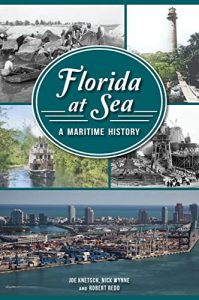For a better future, study the past.
For a better future, study the past.

From small ports to large ports, from rivers to creeks, from lakes to lagoons, water routes have been essential to Florida’s development as a commercial, recreational, agricultural, and cultural entity. With more than 30,000 lakes and ponds and some 1,700 rivers, creeks, and streams, Florida ranks second in the list of wettest states in the USA. Native Americans used the rivers, creeks, and lakes as routes to various locales within the peninsula while harvesting fish and other aquatic edibles to sustain their daily lives. Early European settlers followed suit and supplemented their diets with the bounty from the oceans and fresh water sources. Into statehood, settlers relied on the same sources for food while using fresh water to make the land productive for food and cash crops. By the early decades of the 20th Century, water became a marketable attraction to lure millions of tourists to Florida for recreation and sports. The trend continues today. Join a trio of authors on this look at the immense impact water and maritime activities have played in the development of Florida.
Purchase your signed copy direct from one of the three co-authors.
$23.99
20 in stock (can be backordered)